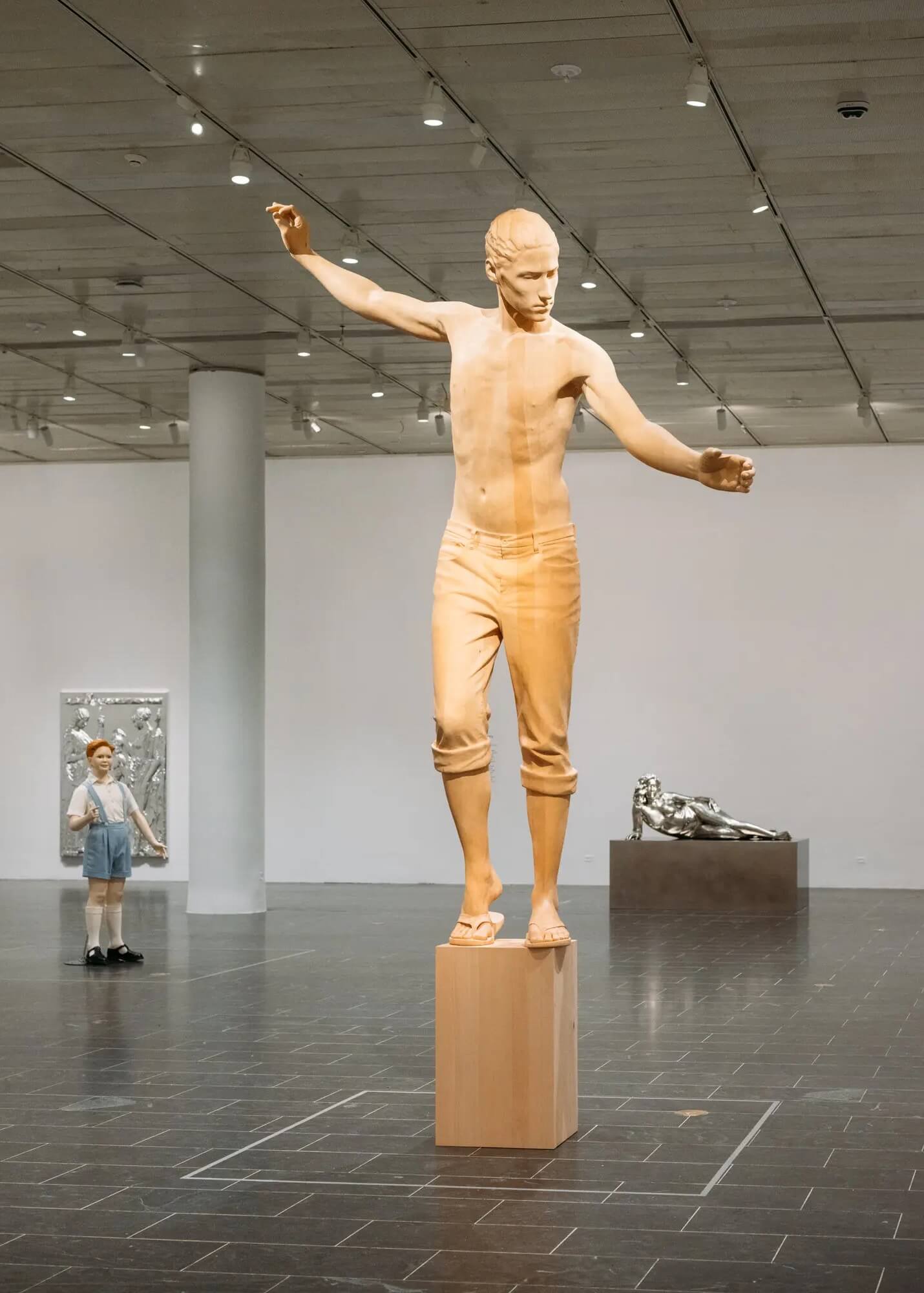Evolution has other desires

Archangel, Charles Ray; photograph by Charlie Rubin
We were pushing an e-bike up Valencia, past the parking lot where I had once helped a stranger illegally rent a U-Haul, and the conversation turned to art appreciation.
J brought up Matthew Dickman’s Dear Space, and how part of her appreciation of the poem was that it felt believably autobiographical.
Believably autobiographical made it relatable, and relatable in turn felt like the author was extending empathy toward her, which made her feel less alone.
J had just written about why art created by an AI is no less valuable, so I asked, what if you found out Matthew was an AI?
Would you feel more alone?
Or - would you feel less alone?
The AI we have today is trained on a corpus of the collective works of humanity, so if an AI writes something that you find relatable, it’s like humanity, collectively, is extending you empathy.
We passed under the windows of what had once been City Dance Studios, the lights dark in the large room where so many nights had started once upon a time, before wandering down Market to sometimes Blackbird, sometimes The Detour (or its predecessor), inevitably Beaux or Cafe, often both.
If AI is just a prism through which the collective light of humanity shines (those of us in the training set anyway), doesn’t that make AI work more meaningful?
AI is us.
AI work is our work.
It feels intuitive to us that our work is meaningful, so by the transitive property, AI work is meaningful.
Well, said J, maybe.
That transitive property can go the other way.
If it feels intuitive to us that AI work is meaningless because it is simply the output of mechanistic pattern matching… Pot, meet kettle.
What are we but mechanistic pattern matchers?
If we can see through the magic trick when AI does it, that should cure us of any delusion that our own work is meaningful.
We hurried across Van Ness, pausing as a car sped down the infamous bus lane.
On a balcony thirty floors above the combination Equinox and Blue Bottle, I’d heard that the All Star Cafe up the street, once the only place Minerva students could get sandwiches and coffee after hours, was to be replaced by apartments “soon, but not soon enough”.
I hoped that the shape of the block meant we would get another Flatiron Building, B was pessimistic that any new construction in San Francisco would have something substantive to say, our conversation that night was interrupted by the hatching of a plot to crash a party at a mansion, that ended, anticlimactically, with the theft of a lemon from an orchard, a lemon which I had intended to preserve but was now decomposing accusatorily on the top shelf of my fridge next to the rice.
The transitive property tug of war:
- Our work is meaningful
- AI work is our work
- AI work is meaningless
I suppose what wins would depend on whether you have a stronger intuition that human work is meaningful, or that AI work is meaningless.
Or perhaps your intuition is that there is no transitive property - the prism breaks the chain.
How can a collection of vibrating atoms have intuition again?
Right, mechanistic pattern matching.
I think there are two types of people in the world.
When you fully internalize the idea that we are collections of vibrating atoms, you could feel despair.
Or you could not.
That we are collections of vibrating atoms capable of understanding that we are collections of vibrating atoms.
That we can not only define meaning, but crave it, and act in search of it - this is the first secular miracle.
It was years ago when I first read, “There IS light in the world, and it is US!” and these days I think, yes and.
The universe is meaningless, immoral.
Natural selection optimizes life for survival, nothing more.
But!
That we exist proves that natural selection can reward complexity - biological, social, intellectual.
Complexity is adaptive, at least in our timeline.
And it’s that same complexity that has birthed our search for meaning and intuition about morality both.
Life that experienced existential crises outcompeted life that did not.
The second secular miracle is that evolution is not just capable of producing beings in search of meaning, but prefers them.
A force as primal as evolution wants to create meaning in an uncaring universe.
Life is blind, spontaneous, unguided… And trends towards meaning.
We entered the lobby of the apartment building, between the back room bar where someone had invented a drink inspired by a video of me climbing a tree in Taiwan, and the storage facility where, inspired by crisis, I’d left my material life in a padlocked closet to wander from city to city for what turned out to be one of the best years of my life, unplanned, searching.
